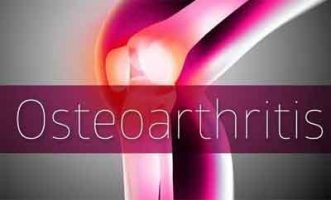- Home
- Editorial
- News
- Practice Guidelines
- Anesthesiology Guidelines
- Cancer Guidelines
- Cardiac Sciences Guidelines
- Critical Care Guidelines
- Dentistry Guidelines
- Dermatology Guidelines
- Diabetes and Endo Guidelines
- Diagnostics Guidelines
- ENT Guidelines
- Featured Practice Guidelines
- Gastroenterology Guidelines
- Geriatrics Guidelines
- Medicine Guidelines
- Nephrology Guidelines
- Neurosciences Guidelines
- Obs and Gynae Guidelines
- Ophthalmology Guidelines
- Orthopaedics Guidelines
- Paediatrics Guidelines
- Psychiatry Guidelines
- Pulmonology Guidelines
- Radiology Guidelines
- Surgery Guidelines
- Urology Guidelines
Zoledronic Acid not effective in Knee Osteoarthritis : Study

A once-yearly infusion of zoledronic acid (ZA) did not significantly reduce knee pain or bone marrow lesion (BML) size in knee osteoarthritis patients over two years though it may have symptomatic benefit in milder disease, according to the findings of a study presented today at the Annual European Congress of Rheumatology (EULAR 2018).
In osteoarthritis, the joints of the patient become stiff and painful mainly in the morning due to thinning of the cartilage within the joints, which allows the bones to rub against each other. It is the most common of all the different types of arthritis and typically becomes more common as people get older.
“Osteoarthritis currently affects over 40 million Europeans and has a significant societal impact on sufferers and economic burden on health systems, this is only set to escalate in a rapidly aging population,” said Professor Thomas Dörner, Chairperson of the Abstract Selection Committee, EULAR. “There are very limited effective treatment options for the disease and bone marrow lesions remain an important therapeutic target.”
A pilot study previously conducted in 59 adults showed promising results that a single infusion of zoledronic acid reduced knee pain and BML size in knee osteoarthritis patients over six months.
A new study was conducted to assess whether these improvements could be reproduced in a larger cohort over two years. The trial was a multicentre, randomized, double-blinded and placebo-controlled which was carried over two years. The trial included 223 patients who were 50 years or older and had significant knee pain and MRI-detected knee BML. The mean age of participants was 62 out of which 52% were female. Patients were randomized to receive either ZA or placebo once-yearly. Patients with severe knee osteoarthritis were excluded.
The study results showed that after 24 months, there were no significant changes in knee pain or knee BML size between the zoledronic acid group and placebo group respectively.
However, pre-specified analyses consistently showed that ZA was more effective than placebo in patients without radiographic osteoarthritis. Common adverse symptoms observed by the researchers in the ZA group were flu-like symptoms and musculoskeletal pain and stiffness.
The European League against Rheumatism (EULAR) is the European umbrella organization representing scientific societies, health professional associations, and organizations for people with RMDs. EULAR aims to reduce the burden of RMDs on individuals and society and to improve the treatment, prevention, and rehabilitation of RMDs.

Disclaimer: This site is primarily intended for healthcare professionals. Any content/information on this website does not replace the advice of medical and/or health professionals and should not be construed as medical/diagnostic advice/endorsement or prescription. Use of this site is subject to our terms of use, privacy policy, advertisement policy. © 2020 Minerva Medical Treatment Pvt Ltd